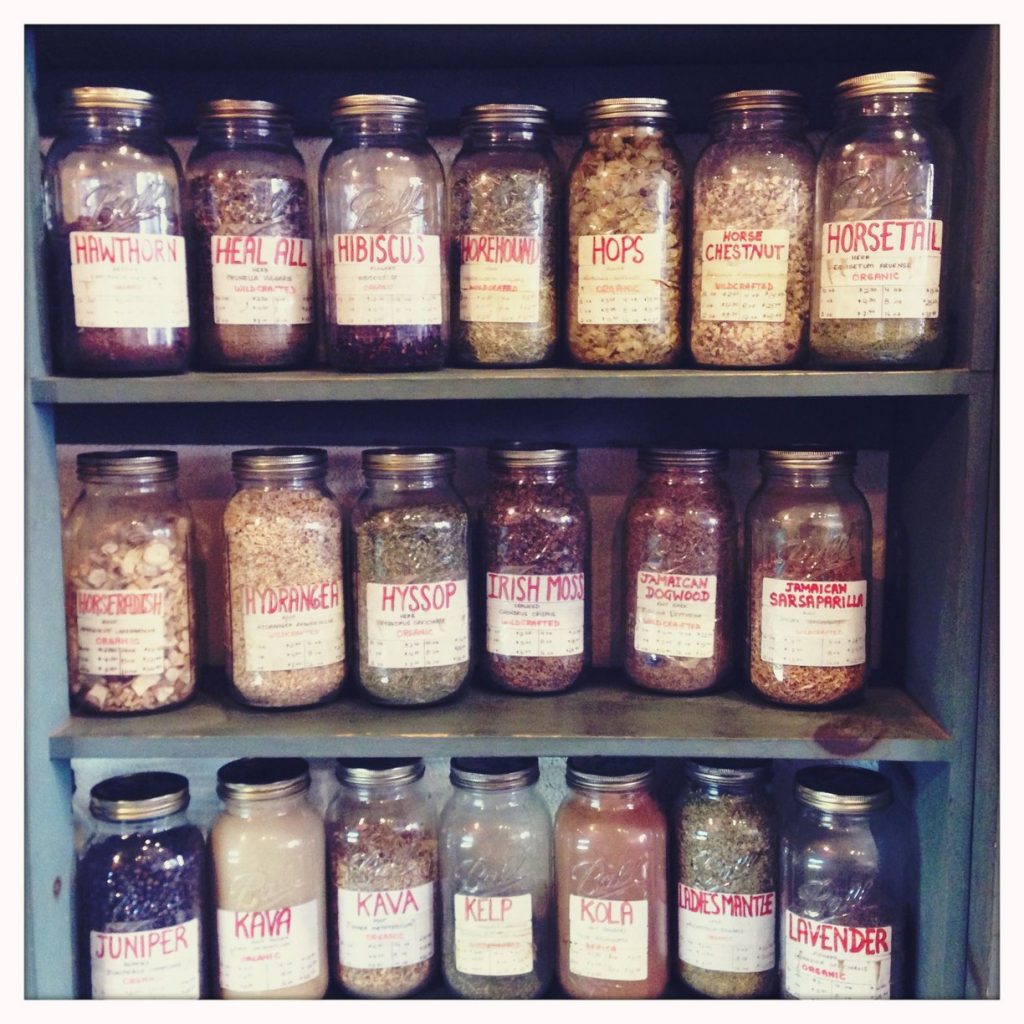
Many sources advocate herbs for healing and cooking, and they’re right – but only half right. There’s another very important part of the equation.
Where you get your herbs and how you store them are of maximum importance.
The best source of herbs
Where should you buy your herbs?
Because the effectiveness of herbs degrades significantly after one year, supermarkets – including most health food stores – are not a good source for your herbs.
Why?
Generally speaking, they have no idea how old the herbs in their inventory are. This rules out premade herbal tea bags for the same reason.
Also, in a typical store setting, herbs are usually exposed to direct light all day, which speeds up their degradation.
If supermarkets and health food stores are out, then where should you get your herbs?
From ethically run herb shops. You can find them online and ideally, if there’s one nearby, right in your own neighborhood. These merchants understand the importance of selling fresh herbs and organize their inventories accordingly. You can also buy from trustworthy local farmers.
The good news
The good news is that not only is the quality of herbs from herb shops much higher, but the price is usually much lower too.
Tea bags from health food stores turn out to be ridiculously expensive per serving compared to buying the herbs directly.
McCormick and other companies that sell culinary herbs in small bottles are also a very poor value. Not only is their quality suspect, but very often you can get ten times or more the quantity from an herb shop for the price they charge for a small bottle. And when you use fresh herbs, you can use a lot less.
If you can grow some of your own herbs, even in very small quantities in a pot or container, great. Nothing will beat the quality of freshly picked herbs from your own garden.
And of course, always buy ORGANIC. There’s no point in buying medicinal or culinary herbs that have been saturated with chemical toxins. This is especially important when the source is overseas.
Storage
Now that you know where to get your culinary and medicinal herbs – and where not to get them – here are some important tips for how to store them.
Five things speed up the degradation of an herb’s effectiveness:
1. Time
2. Light
3. Heat
4. Dampness
5. Air
The more you avoid these negative influences, the longer your herbs will retain their maximum potency.
Step One – Get mason jars (or recycle glass jars you buy food in).
Step Two – Find a cool, dark place away from heat (many people store herbs near their stove – a bad idea). A closet or pantry is an ideal solution.
Step Three – If the herbs are sold in an airtight bag, keep them that way until you need them. If not, put them in the glass jar, put the lid on it, and seal it to minimize any air transfer.
Step Four – Get blank labels and always label your herbs with the name of the herb, the date of acquisition, and the source.
Why?
Without a label, you’ll most likely forget when you got the herbs. You might even forget what they are! Also, when it comes time to replace the herbs, your label will remind you where you got them.
Summary
All of these things sound simple – and they are – but how you source and handle your herbs makes a world of difference in how effective (and tasty) they’ll be.
The good news is that not only is this a much more effective way of handling herbs, but it’s also a much less expensive way. You’ll get much better quality for a fraction of the price you pay for inferior goods sold in supermarkets and health food stores.
To summarize the steps:
Get organically grown herbs straight from an ethically run herb shop, online or offline.
Store your herbs properly to avoid degradation from light, heat, air, and dampness.
Label your herbs so you know what they are and where and when you got them, and don’t expect maximum benefit from herbs a year old or older.
– Ken McCarthy
PlantWisdom.org

